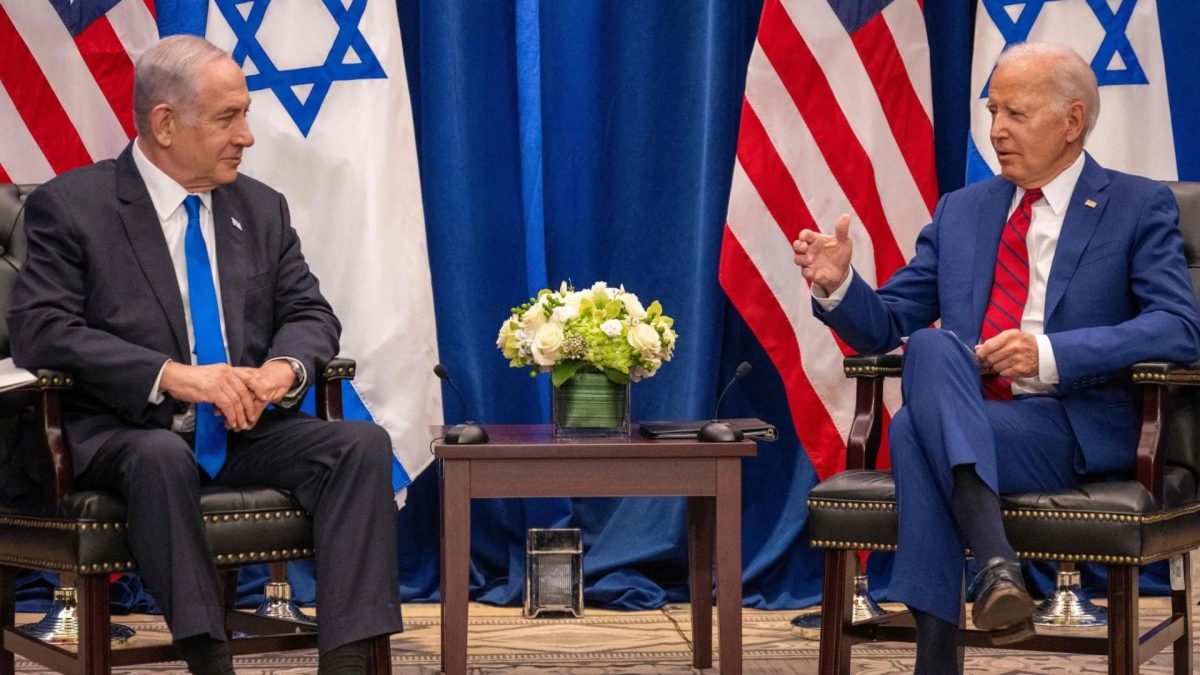As Israel works on finalising its methodology of a retaliatory attack on Iran for the October 1 ballistic missile attack, Israeli Prime Minister Benjamin Netanyahu has reportedly told the US that he is willing to strike Iranian military targets and not nuclear or oil sites.
Netanyahu also said that Israel would listen to the opinions of the United States, but will make final decisions based on national interest.
A report by the Washington Post quoted two people familiar with the matter as saying that the comment was made by Netanyahu during a telephonic conversation with US President Joe Biden on Wednesday - their first call in more than seven weeks after months of escalating tensions between the two leaders.
Netanyahu’s reported remark comes amid Biden’s persistence of not supporting an Israeli strike on nuclear-related sites.
Israel listens to US opinions, but final decisions will be ours: Netanyahu
The Israeli prime minister’s office in a statement said that “we listen to the opinions of the United States, but we will make our final decisions based on our national interest.”
The Washington Post report cited officials familiar with the matter as saying that during the consultations with the US, Israel said it intends to wrap up operations in Lebanon in the coming weeks.
Netanyahu will continue consultation with US but won’t wait for green light
The report further quoted an Israeli official close to Netanyahu as saying that the PM would continue to consult with US officials on Israel’s looming strike against Iran, he would not wait for a green light from Washington.
Impact Shorts
More Shorts“The person who will decide on the Israeli response to Iran will be [Netanyahu],” he said.
Why won’t Israel attack Iran’s nuclear, oil facilities?
As per the official quoted in the report, Israel’s plans are being calibrated to avoid having an impact on the 2024 US Presidential election.
This signals Netanyahu’s understanding that the scope of Israel’s retaliatory strike has the potential to reshape the US presidential race.
Any possible Israeli strikes on Iranian oil facilities could shoot up energy prices, while an attack on the nuclear research program could erase any remaining red lines governing Israel’s conflict with Tehran, triggering further escalation and risking a more direct US military role.
Therefore, Netanyahu is expected to go after military sites avoiding targeting nuclear and oil sites.
When Israel is expected to carry out retaliatory attack on Iran?
Israel’s retaliatory attack on Iran would be carried out before the November 5 US Presidential election, the Washington Post report cited people familiar with the matter as saying, who also mentioned that a lack of action could be interpreted by Iran as a sign of weakness.
“It will be one in a series of responses,” the person said.
As per US officials quoted by the Washington Post, Netanyahu was in a “more moderated place” during last week’s call with Biden than he had previously been. The apparent softening of the prime minister’s stance factored into the US President’s decision to send a powerful missile defence system to Israel, they officials further said.
On Sunday, the Pentagon announced that it was deploying its anti-ballistic THAAD battery system to Israel, along with about 100 US military personnel.
The officials familiar with the matter informed Netanyahu on Thursday night convened his security cabinet for three hours during which he discussed the options on the table, however, the prime minister did not seek official authorisation for the attack from his cabinet.
On October 1, Iran, without any warning, fired nearly 200 ballistic missiles at Israel in retaliation to assassination of Hezbollah leader Hassan Nasrallah, who was killed in an Israeli strike, and the killing of Hamas leader Ismail Haniyeh in Tehran.
Amir Saeid Iravani, Iran’s ambassador to the United Nations, said the attack was meant to “restore balance and deterrence.”


)

)
)
)
)
)
)
)
)



